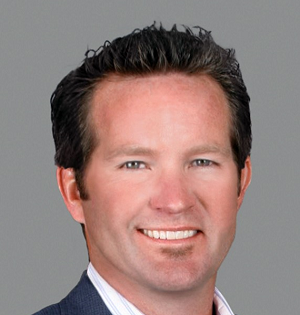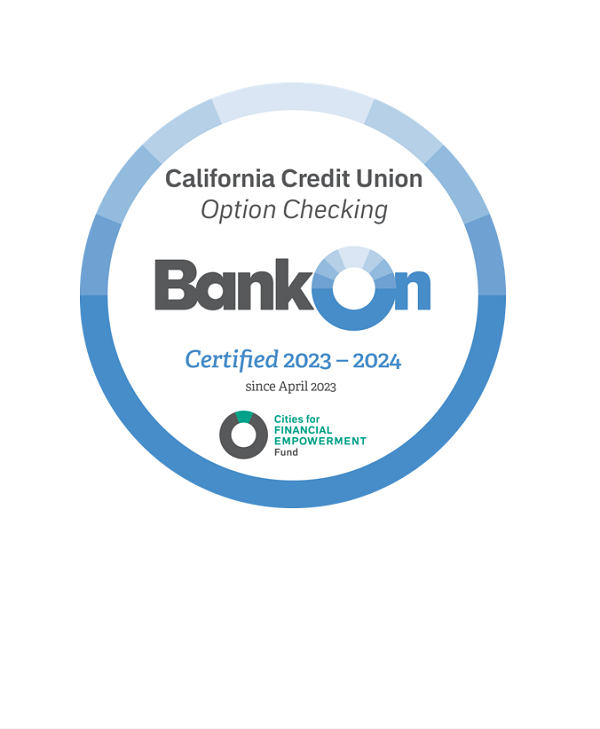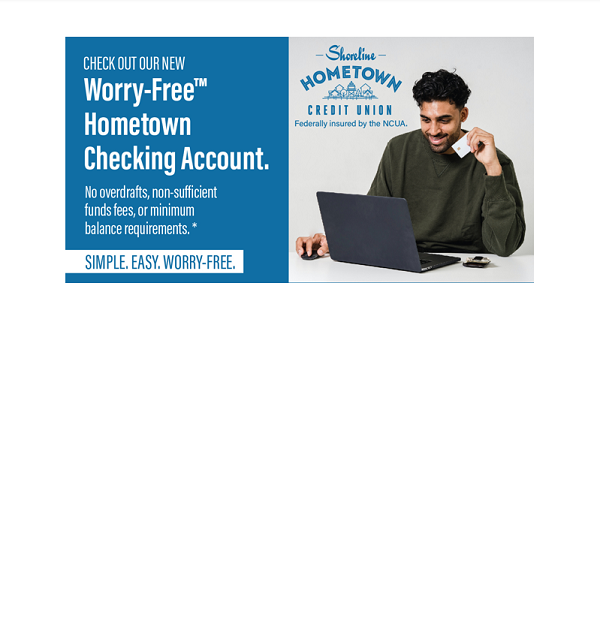Top-Level Takeaways
- Credit unions are leading providers of Bank On certified accounts, a national initiative to provide affordable financial services for the un- and underbanked.
- The accounts include features such as no overdraft fees, low minimum balance requirements, and free online banking. Financial education is a key component, too.
- Credit unions rely on local partnerships and the Bank On brand to raise awareness about how the accounts build credit and savings without costly fees.
In 2021, nearly 4.5% of U.S. households were unbanked, according to the FDIC. Another 14.1% were underbanked. Credit unions are working to change that, partnering with like-minded organizations, public officials, and regulators to improve the financial stability of their local communities.
- Unbanked — A household with no checking or savings account at an FI.
- Underbanked — A household with a transactional account but also uses services such as check cashers, payday lenders, and pawn shops (at generally higher fees and interest rates).
Households lack access to basic transaction accounts for a variety of reasons, including distrust of financial institutions, minimum balance barriers, identification issues, and credit and banking history.
These are tall hurdles to overcome. That’s why, the Cities for Financial Empowerment (CFE) Fund created a national Bank On initiative to build on locally led partnerships to raise public awareness, target outreach, and expand access to financial education. The CFE also created a certification program that sets standards for consumer-friendly accounts. Those baseline requirements include a minimum opening deposit of $25 or less; free access to a debit card network; and no overdraft, NSF, account activation, or low balance fees. Branch, ATM, and phone banking are included, as well as free bill pay, online and mobile banking, and electronic monthly statements.
Want to see what it takes to be a Bank On FI? Check out the 2023-2024 standards online.
Today, more than 375 accounts meet that certification criteria, with credit unions and banks all creating their own mix of products and services to fit the needs of their local marketplace and fields of membership. Here’s a look at how three cooperatives that serve different populations — California Credit Union, Minnequa Works Credit Union, and Shoreline Hometown Credit Union — are addressing the Bank On challenge and opportunity.
A Trustworthy Option In California
CU QUICK FACTS
California Credit Union
DATA AS OF 06.30.23
HQ: Glendale, CA
ASSETS: $4.6B
MEMBERS: 170,876
BRANCHES: 24
EMPLOYEES: 506
NET WORTH: 9.7%
ROA: 0.50%
California Credit Union ($4.6B, Glendale, CA) is headquartered in the Los Angeles suburb of Glendale. Along with its San Diego-based North Island Credit Union division as well as school employees statewide, the credit union has a vast, diverse FOM of more than 22 million people, including the five most populous counties in the nation’s most populous state.
The cooperative recently earned Bank On certification for its Option Checking, which it introduced in 2019. As of September 2023, 1,216 of these accounts held a total balance of approximately $1.6 million. That’s a small piece of the credit union’s 134,679 total checking accounts holding more than $1 billion in balances, but it’s not insignificant.
“Serving and supporting unbanked consumers is a key strategic focus for California Credit Union,” says Steve O’Connell, CCU’s president and CEO. “We want to ensure our product offering, support services, and resources meet the needs of our underserved populations.”

The Option Checking account offers features like a free debit card, online and mobile banking, bill pay, and direct deposit. Importantly, it has no overdraft fees that contribute to debt cycles, and participants also can access the credit union’s GreenPath financial wellness and counseling program. As a Bank On certified account, Option Checking is featured on the Bank On website, making it easier to find for interested parties.
CCU also recently secured CDFI status as part of its approach to serve the underserved and is certified as a low-income designation financial institution. And with its Bank On affiliation, grassroots marketing of its presence will take a step forward, O’Connell says, thanks to the Bank On Los Angeles County coalition, which is managed by the County of Los Angeles Department of Consumer and Business Affairs’ Center for Financial Empowerment.
“We look forward to working with local coalition partners to ensure all individuals can bank, save, and borrow with a trusted financial partner, supported by financial education tools to assist in life-long financial success,” the CEO says.
Money At Work In Colorado
CU QUICK FACTS
Minnequa Works Credit Union
DATA AS OF 06.30.23
HQ: Pueblo, CO
ASSETS: $231.9M
MEMBERS: 12,279
BRANCHES: 3
EMPLOYEES: 34
NET WORTH: 13.1%
ROA: 0.58%
From Southern Colorado, Minnequa Works Credit Union ($233.6, Pueblo, CO) serves a field of membership that includes approximately 175,000 people across Pueblo and Custer counties.
The cooperative — headquartered in a historic steel town 110 miles south of Denver on the Front Range of the Rocky Mountains — launched Overtime Checking on April 1 to provide affordable access to banking, incentives to save, and a foundation for financial education as well as earn Bank On certification.
Among its more than 20 features, Overtime Checking requires no minimum balance and only one debit transaction per month. It charges no overdraft fees and pays 1.5% interest on balances up to $5,000.

“That’s their money working overtime,” says Nathan Cape, CEO at Minnequa Works. “We want to encourage a culture of saving and trust that can pave the way for further financial relationships.”
The credit union aims to provide the benefits of Overtime Checking to underserved individuals in partnership with the United Way and Bank On Pueblo County, which Minnequa Works featured in its Money Matters YouTube series. According to Cape, the credit union is trying to build inclusivity and access across its market.
“These are core values that guide us to provide financial services that are accessible and beneficial to all members of the community, especially those that have historically been underserved and underbanked,” the CEO says. “We want to create an environment where individuals from diverse backgrounds and financial circumstances feel welcome, respected, and empowered within the financial system, regardless of their socioeconomic status.”
The credit union especially has its focus on younger members — in Pueblo, 25% of the population is 18 or younger — but Overtime Checking works for members of any age.
“The key features and benefits of the account aim at developing relationships with younger generations,” Cape says. “But it still can positively impact individuals throughout an entire spectrum of financial awareness.”




No Worries In Wisconsin
CU QUICK FACTS
Shoreline Hometown Credit Union
DATA AS OF 06.30.23
HQ: Manitowoc, WI
ASSETS: $135.7M
MEMBERS: 7,870
BRANCHES: 3
EMPLOYEES: 40
NET WORTH: 7.4%
ROA: 0.06%
Shoreline Hometown Credit Union ($135.7M, Manitowoc, WI) had to change little about its Worry-Free Hometown Checking account to earn Bank On certification.
“We had to make one small change to our bill pay activity requirement and make it free without requiring at least one bill being paid a month,” says president and CEO Nathan Grossenbach, whose institution has branches in the Lake Michigan towns of Manitowoc, Two Rivers, and Green Bay.
Although the account itself is only a year old, Grossenbach says the cooperative has served primarily blue-collar Manitowoc County for 80 years.
“We have a rich manufacturing history here,” the CEO says. “We intentionally cultivate a credit union that serves the blue-collar members the best. We try to have the best checking account, car loans, and mortgage loans in the community.”

Since Worry-Free launched in August 2022, members have opened 89 accounts, that’s one in seven new accounts during that time. The average balance is $292, compared with the $5,667 average for all 6,209 checking accounts at the credit union.
COO Lisa Sment and Grossenbach point to the large difference as evidence that the accounts are serving people with different concerns when it comes to their checking accounts and family finances. The lack of fees and minimums helps members budget better and cover personal needs rather than putting money toward fees and banking services.
That’s exactly what members want. The credit union knows this because it polled them. Then, it got to work reaching out to members who spend more than $200 a year on overdraft fees.
“Our initial marketing efforts were mostly emails targeted at existing members that would benefit from this account, including those that are frequent overdrafters,” Grossenbach says.
Up next, it will target members who spend $50 to $200 a year.
Overdraft underscores the importance of financial education, which is another key component to the new checking program. The cooperative’s CCUFC-certified financial consultants work with members to create a plan based on their own mix of credit building, savings, major purchases, and other goals.
“They establish a relationship with our financial consultant during the account opening process and throughout their financial journey,” Grossenbach says.
And at financial literacy seminars hosted by community partners and the credit union, Shoreline Hometown staff cover such topics as retirement, investing, Medicare, understanding credit, creating a budget, and establishing financial goals.
Grossenbach says a majority of the credit union’s new memberships come from “bank defectors” and others who simply cannot afford to maintain an average balance to avoid monthly fees.
“On the lending side, we are one of the many credit unions that provide small-dollar loans to our members, will work with our members to consolidate their debt, and give them a chance even with derogatory credit,” the CEO says. “As our industry consolidates and banks focus on the affluent and large businesses, the blue-collar community has found themselves with few options. Shoreline hopes to fight back and provide opportunities for the members who need a financial refresh, a second chance, or an option that is tailored to their financial needs.”
Big Problems Require New Ways Of Thinking
Learn how to solve big problems, like how to bank the underbanked, while your executive team gains the skills and insights they need to become transformative leaders. You can do all this and more with a purpose-driven strategic model — and Callahan can help. Join the hundreds of credit union leaders who have discovered how to lead with purpose.
